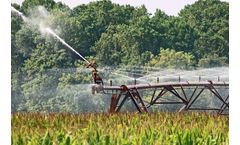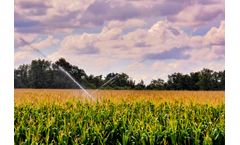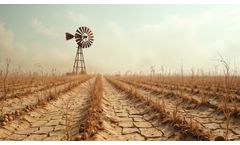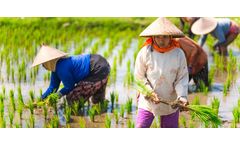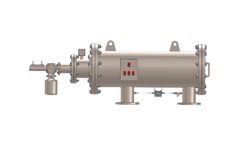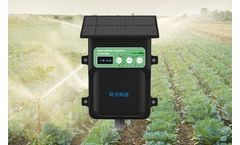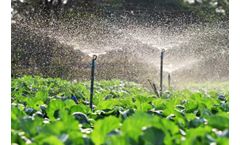Crop Water Articles & Analysis
109 articles found
In today’s rapidly changing world of agriculture, effective water management is the secret to having healthy crops, farming sustainably, and achieving maximum yields. With the world’s population increasing and food requirements increasing, farmers are taking up new concepts to farm with greater efficiency and preserve precious water. ...
Field Irrigation Systems are essential in agriculture since they help provide water to plants where rain may be erratic or unavailable. Given the ever-rising population around the globe, food production is on the rise, and thus, there is a need to maximize agricultural production. Therefore, contemporary field irrigation systems have developed as an all-important tool to ...
The irrigation process in agriculture, landscaping, and water management is crucial in its work with climate change-altered efficiency and sustainability. When the global temperature increases, so does the irregular supply of water, which directly affects irrigation systems across different parts of the globe. We pick from here and discuss further how climate change impacts irrigation and the ...
Biochar has a porous structure and large surface area, which enhances soil's ability to retain water and nutrients. This is especially beneficial in arid regions where soil moisture retention is critical for crop survival. ...
Less water means fewer crops, and fewer crops lead to more food insecurity. The latest analysis from the World Resources Institute (WRI) shows that a quarter of the world’s crops are grown in areas where water supply is highly stressed, unstable, or both. In fact, rice, wheat, and corn, which provide more ...
For generations, farmers have relied on chemical fertilizers to boost crop yields. However, these fertilizers come with a hidden cost: environmental damage. ...
Through the meter, farmers can understand the different electricity usage patterns of different fields, different crops, and identify excessive usage issues, allowing them to take timely measures to reduce electricity costs. For example, during irrigation, the meter can automatically control the irrigation equipment based on soil moisture and crop ...
It involves monitoring and controlling various factors such as soil moisture levels, weather conditions, crop water needs, and irrigation system efficiency to deliver water precisely when and where it is needed. ...
ByJXCT
High EC readings indicate high salt content, which can limit water movement and reduce crop rooting depth. Portable soil EC detectors allow farmers to identify areas of the field with poor water retention capacity, enabling them to adjust irrigation practices accordingly. This can help reduce water wastage and ensure that ...
ByJXCT
Abstract Irrigation is crucial for successful crop growth and yield, but traditional irrigation methods often result in water waste and inefficiency. ...
ByJXCT
This is particularly important in areas where water is scarce and crop production is limited by water availability. 2. Improve crop yields: Through precise water management, intelligent irrigation controllers enable farmers to optimize crop growth and increase yields. By providing the exact ...
California Almond Orchards: A study in California almond orchards found that smart soil sensor systems reduced water usage by up to 30% while maintaining crop yields. 2. South African Vineyards: In South Africa, smart soil sensor systems have been successfully implemented in vineyards, reducing water consumption by 20% and increasing grape yields ...
One of the critical components of successful agriculture is irrigation, which ensures that crops receive the water they need to thrive. However, using untreated or impure water for irrigation can have detrimental effects on crops and the environment. ...
Automated Scheduling: The controller enables automated scheduling based on factors such as crop type, soil moisture levels, weather conditions, and water requirements. ...
Farmers constantly pursue innovative technologies to improve crop quality and yield in today’s ever-evolving agricultural landscape. ...
Across Southern Africa, water is a symbol of life; held sacred by a diverse collection of indigenous peoples and communities who believe in the cleansing and life sustaining power of water. It is the spiritual belief of many of these communities that water is a “gift to future generations.” Along the course of South Africa’s Letaba river this life sustaining spiritual connection ...
Water is a precious resource, especially in agriculture where efficient irrigation practices are essential for crop growth and yield. ...
Begoña Tarrazona, a civil engineer and irrigation specialist at Idrica, explains current water scarcity issues, and what measures can be taken to overcome this situation. ...
ByIdrica
Population growth and an increase in irrigated agricultural land lead to a greater need for water and energy, at a time when global warming and rising greenhouse gas emissions are posing a real environmental challenge. In this context, the benefits of smart irrigation, i.e., using the exact amount of water needed for each crop, help to optimize ...
ByIdrica
Understanding the layers of inequality in agriculture Officially, Kavita Devi would not count as landless. Even though she belongs to a land-owning family, in practice, she is landless. These intra-household gender-generational granularities are not accounted for in official statistics of landless rural families in Bihar who make for over 60% of the state’s population, of which, over 92% ...

